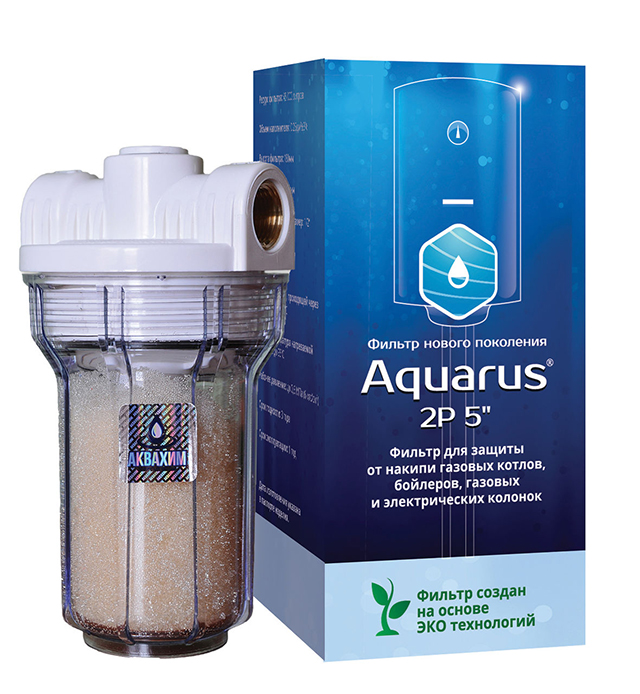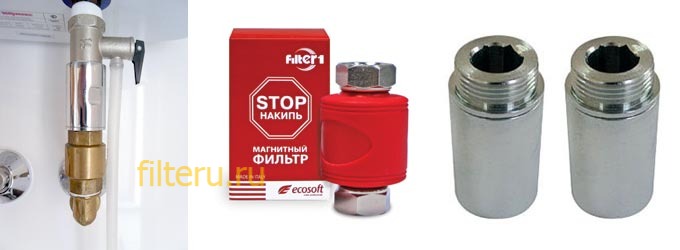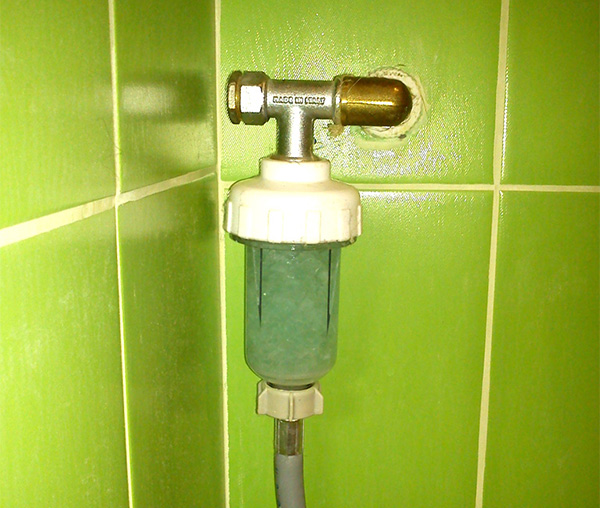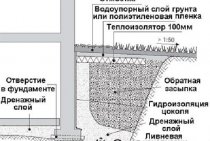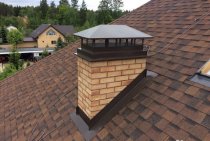Do you need a water heater filter?
The quality of tap water directly affects the life of the heater, especially if it is constantly in use. Water must be "soft" and meet the following requirements:
- Transparency.
- No unpleasant odors.
- The minimum content of metal salts, hydrogen sulfide.
- Absence of bacteria.
It is not easy to achieve such indicators. Often, water contains heavy salts of magnesium and calcium: settling on the elements of the boiler, they reduce thermal conductivity. As a result:
- A large amount of electricity is consumed.
- The water takes a long time to heat up.
- The content becomes cloudy.
- TEN burns out.
When hard water is heated, scale is produced - at first a small deposit. If it is not removed at this stage, then the heating element is covered with limestone.
If you are not configured to buy a filter or you do not have the opportunity, you must carry out the following procedures:
- Regular inspection of the internal elements of the tank.
- Wall and heating element cleaning.
- Replacing the magnesium anode.
Then you will do it more and more often: not only spend your time and effort, but also spend money on cleaning products. Just imagine, at least once every six months you will need:
- Drain water from tank.
- Dismantle the heating element by disassembling the fasteners.
- Remove the housing cover and clean the walls from plaque, clean the heater.
In this case, there is a risk of damage to one of the parts. Isn't it easier to improve water quality than to endure such consequences?
Softening methods
Softening of a liquid from an autonomous source or water supply is carried out in several ways:
Thermal methods (freezing and boiling)
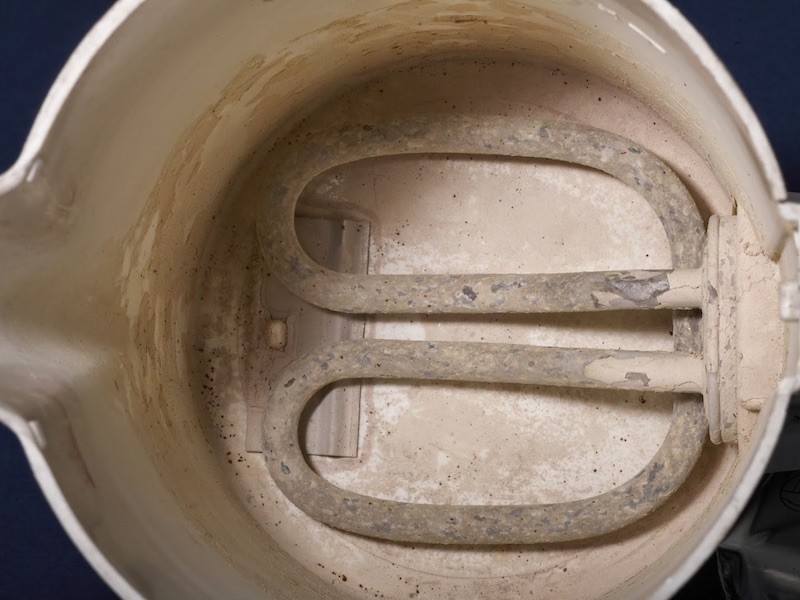
To remove the hardness of water from wells, a thermal method is used. After boiling, hydrocarbonates decompose. Sediment remains on the walls of the dishes, but the liquid becomes softer. This is an easy way for home use. At the same time, it is allowed to get rid of dangerous bacteria and microorganisms.
Freezing also helps to reduce the concentration of salts. The formation of ice occurs gradually, the liquid that remains around it will have many impurities. It needs to be drained. After thawing, soft moisture will be obtained. Both methods allow you to clear a limited amount of fluid consumed.
Chemical reagents
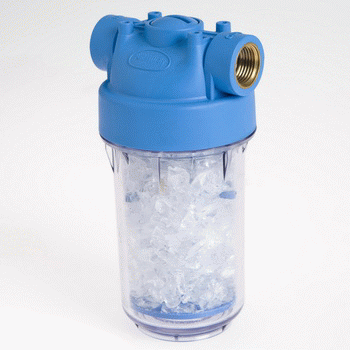
To soften water, chemical additives are used in the form of tablets, powders, concentrates. They are laid in washing machines, dishwashers. When dissolved, the reagents soften the liquid. They are not added to drinking water. For these purposes, available means are used: soda, vinegar, citric acid. Baking soda is added when cooking at the rate of 1 tsp. for 3 liters of water. Acidified liquid is recommended to be used for shampooing, removing scale. All chemicals are used in strict dosage.
Which filter is better to choose
To make it easier for you, we have compiled a selection of filters that users have responded well to. Now you can choose which product to supply for anti-calc.
Svod-AS
The reagent contained in the flask is called "food". It does not allow scale to crystallize, so it does not settle on surfaces. In addition, the action of the reagent allows you to remove already deposited plaque.
Suitable for hardness level: up to 34.
- Works at a temperature of 105 degrees.
- Water after cleaning becomes potable, corresponds to GOST. Can be safely used for domestic purposes.
- Easy to install.
- Replacing the filler is easy.
For example, the Svod-AC 10/250 model is designed for 42,000 liters. Connects to ½" thread. Usually installed on a tee.
Model Vault 5/100 has a resource of 15,000 liters, and the pipe diameter is ¾ inch.
Geyser 1 PF
Installed in front of the water heater.
Works on the basis of polyphosphate salt. Dissolving in water, polyphosphate binds impurity ions so that they do not precipitate. The transparent flask allows you to monitor the amount of salt inside.
It is used to soften water for technical purposes. Productivity is 6 liters per minute. The temperature of the liquid that passes through the filter is 40 degrees. The salt filter is connected to a ½ inch thread.
Our water Ecozon 200
A similar model can be put in the country or in the apartment. The reagent inside cleans up small debris: sand, debris. It also neutralizes salt particles, so they do not create lime deposits. Can be used for boilers, boilers, washing machines and dishwashers.
Placed on the main line, attached to the thread ¾. The resource is 20,000 liters. The operating temperature does not exceed +30 degrees. Does not contain phosphates, therefore it is completely safe for the consumer.
Aquarus 5B
Eco-filter based on new technologies. It is connected to the highway, the flow passes through it and is saturated with the active substance. Reduces the amount of chlorine compounds and heavy impurities. The working resource is 17,000 liters. Passing temperature is +5-38 degrees.
Cristal Policompact
They clean the contents of wells and water pipes from silt, sand, chlorine, metals, bacteria. However, water after purification can only be used for technical purposes. The composition changes every six months, and it is not necessary to dismantle the device. Throughput - 3,500 l / h. The temperature is 35 degrees.
What else is useful to install a filter device:
- Cleans pipes from already deposited scale.
- Provides long-term operation of shut-off valves.
Installation is carried out in front of the water heater, for this a tee with a shut-off valve crashes into the pipe. A filter is connected to one of the outputs. Salt is replaced as soon as it darkens or runs out.
Now you can make the right choice. Take care of your equipment and the health of your loved ones, equip the pipeline with cleaning elements. Watch related videos:
Today, in many apartments and country houses you can see water heaters, they help out during periods of scheduled hot water outages and in cases where it is not possible to get hot water in other ways.
The heating element of boilers, like other household appliances, needs to be protected from scale if the water is hard. Otherwise, it may fail ahead of time. Salts are deposited on the walls and tubes of household appliances.
The use of salt filters for boilers makes it possible to prevent the formation of scale and extend the service life.
The choice of water filters for water heaters is not an easy task, so choosing a device for both domestic use and industrial use is not so easy. Let's take a look at this issue!
Do I need to install a water filter for the water heater
With hard water, scale forms in water heaters, which in turn will lead to a decrease in efficiency and then to a breakdown of the heater. It is possible to deal with scale in several ways. first: as you already said the filter or as they are also called, water softeners, we will get rid of the cause of scale formation to a greater extent. second: it is the use of magnetic polarizers. The result is the same as the filter. third: it is proved that at a temperature of 80 degrees, 7 times more scale is formed than at a temperature of 60 degrees. So that water heating produce a maximum of 65 degrees. There are also storage water heaters, they are designed specifically for hard water. In such a system there is no scale problem, but in my opinion the efficiency is lower.
You definitely need to install a filter, as your water heater will not last long without it.I had a similar situation with a boler, which literally flew in half a year, and when the masters came and dismantled it, I was shocked by how much scale was there, so put the filter on without fail.
According to experts, there are two problems that the water heater is afraid of: scale (this problem can be handled by a water filter or periodic cleaning of the heating element) and wiring (installing a water heater can create a “critical situation”). To solve this problem, two types of filters are installed: coarse filters and fine filters. Coarse filters are necessary for preliminary purification of the supplied water in the apartment from rust, sand and other foreign objects. Such filters have a mesh installed inside, the mesh size of which is up to 500 microns. Filters are installed after shut-off ball valves in order to always be able to shut off the water supply and clean the filters. Fine water filters provide a continuous supply of filtered water, preventing the penetration of foreign bodies into the lines, in particular, rust particles, hemp fibers, grains of sand, etc. These particles accumulate on the filter screen and the bottom of the bowl and can be easily removed by turning on the rinse mode. In the process of washing, the flow of water passes through the grid, washes it from the inside and, capturing debris at the bottom of the flask, is removed either into a substituted container or into the sewer. The flushing mode is switched off by simply turning the ball valve handle. Such filters are equipped with a mesh, the mesh size of which is 50 microns or 100 microns. It must be remembered that the filter should only be installed with the tap down.
tiger27, a mechanical water filter does not solve the scale problem in any way. Typically, salt precipitation occurs when water is heated or exposed to air. We have water with a hardness of 8 mg-eq / l. We heat water with a gas column, we do not use any filters. The first column served for 30 years, the second for more than 10, it works properly. I think if your hardness is at the same level, then you should buy an instantaneous water heater, then there will be much less problems.
Why is it worth installing a filter for the boiler is it necessary
Understanding that your home has hard water is very simple even without special analysis. If after several days of operation, for example, an electric kettle, you notice the appearance of scale, then it’s time for you to go buy a filter element. Limescale, formed as a result of an increased content of dissolved salts in water, reduces equipment performance, since water heats up more slowly, its flow decreases . As a result, the boiler may even burn out. You have to overpay for utilities - electricity and water. Unpleasant tastes and odors may appear in water and food.
Coarse water filter for boiler
To protect all equipment in the house, coarse and fine filters are installed, which primarily trap mechanical impurities, but they cannot cope with hardness salts. In such a situation, experts recommend taking care of installing magnetic softeners. They are mounted on the supply pipe to the boiler. They can also be installed directly into the pipeline, which makes the filtration process even more efficient.
The impact of a magnetic field allows you to solve an important problem without the use of chemicals and reagents - the fight against salt deposits. Once in such a device, calcium bicarbonate molecules break down to crystals that do not settle on the equipment, but are simply washed off into the sewer.
Another popular option for anti-scale filters is using polyphosphates. Polyphosphate salt, passing water through itself, saturates it with sodium polyphosphate, resulting in a film that prevents scale from settling.
These devices are characterized by low cost, a wide range, and require regular replenishment of the supply of polyphosphate salt.
The disadvantages include a short period of use - an average of about six months, the need to regularly check a sufficient amount of filler, and not all polyphosphate filters can be used for water heaters.
Not so long ago, filters appeared on the market in which ion-exchange resin acts as an active substance. It is safer than polyphosphates, completely decomposes when released into the environment, and effectively copes with salt deposits.
There are many companies that produce anti-scale filters. Let's consider some of them in detail.
Types of filters and principle of operation
There are three groups according to the type of cleaning:
- Deep. They are mounted up to the water meter and retain small debris: dirt, sand, pieces of rust. The item needs to be cleaned periodically.
- Thin. They purify water from harmful impurities. They can be woven and mineral. When the substance darkens, the user understands that it is time to replace the cartridge.
- Biological. These devices are multi-stage. They perform several functions at the same time: it cleans from dirt, salts, chlorine, viruses and bacteria.
Filters are also distinguished by the principle of cleaning. Most often used:
- Magnetic. Creates a magnetic field, under the influence of which calcium molecules do not settle on surfaces, but disintegrate and are washed away. Thus, the product softens the water. It can be installed both near the boiler, fastened to the nut, and cut into the pipeline. Great for a gas boiler if you have an indirect heating boiler.
- Polyphosphate. Inside the plastic flask contains salt - polyphosphate. It dissolves in water depending on the strength of the flow. Forming a protective film, polyphosphate does not allow deposits to settle. Calcium and magnesium salts combine into a structure that cannot become scale. There are two types of devices: in some you need to periodically add salt, and in others you need to insert new cartridges.
There are also filters that are filled with resin inside. Water, passing through it, changes the structure.
